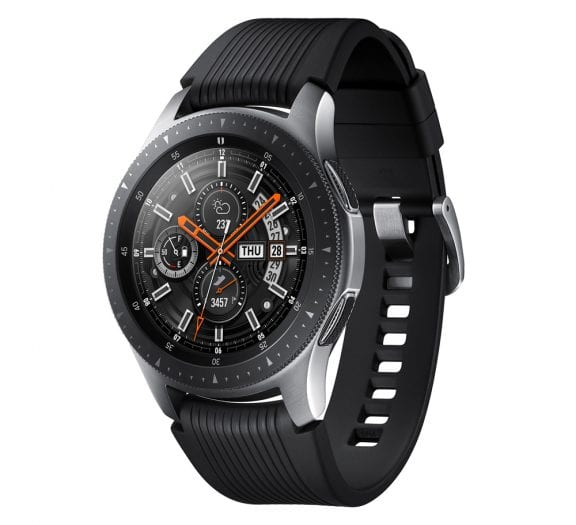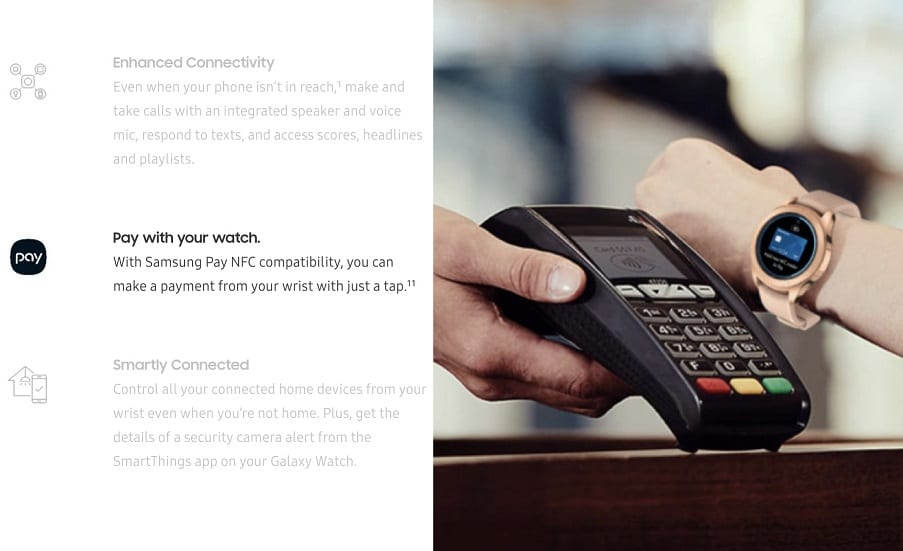The much anticipated Samsung Galaxy Watch has finally been launched. And along with the name, the watch sees a number of significant changes and improvements over its predecessor Gear S3. However, the watch lacks one big feature that made the Gear S3 an instant hit – Magnetic Secure Transmission (MST). Without MST, Samsung Pay in the new Galaxy Watch can now make payments via NFC only.
No MST in Galaxy Watch
If you aren’t familiar, MST is a technology that emits a magnetic signal that mimics the magnetic strip on a traditional payment card. Samsung acquired the technology when it purchased LoopPay in February 2015. With MST, compatible Samsung smartphones and watches are able to make payments at nearly every point-of-sale terminal, regardless if it accepts NFC payment options. MST is the technology that sets Samsung Pay apart from its competitors, Apple Pay and Google Pay.
However, despite this big advantage, Samsung has decided to not have the feature on its best ever flagship smartwatch, the Galaxy Watch. Samsung probably saved some space by removing it, to make way for a bigger battery. But I still find it a not-so-wise utilization of a $250 million acquisition. What is a big battery worth if you’re removing the only feature that sets your device apart from the rest?
The Galaxy Watch does offer a plenty of new and improved features over its predecessor, but without MST, people don’t really have a solid reason to upgrade from the Gear S3. In countries like India and the US, NFC is still far from being popular in the mobile payment world. The Majority of payment terminals in these countries are non-NFC. To make payments in such terminals, you need to have your card with you. A smartwatch with MST would have been a life saver, and Samsung has surely missed a big opportunity here.
Without MST, Samsung Pay is now only as good as other mobile payment services, all of which rely on NFC. This essentially means if a terminal doesn’t specify “Samsung Pay”, you won’t be able to make a payment using the Galaxy Watch.
You’ve disappointed your fans, Samsung.



















